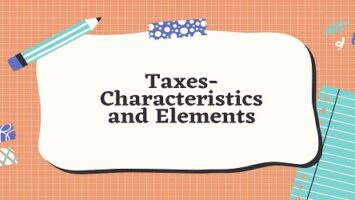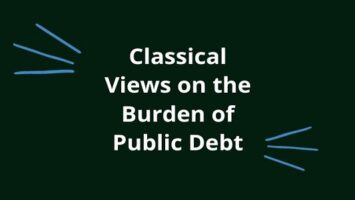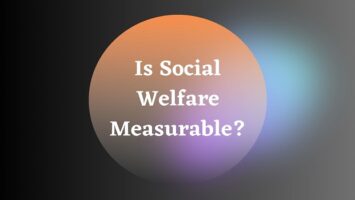The Rational of Public Expenditure on Public Goods:
The theory of public goods- social goods and merit goods provides a rationale for the allocation of resources for the satisfaction of social wants and merit wants. In other words, it points out that the provision for public goods should be made by the government. It means the theory of public goods provides a rationale for the budgetary provision for the satisfaction of social wants and merit wants. It comes in the allocative function of the budget policy. The problem is of central importance to the economics of the public sector, just as the theories of consumer household and of the firm are at the core of the private sector economics. Let us now understand the meaning of public goods- social and merit goods and see, why the social and merit wants cannot be efficiently satisfied through the public sector as compared to the private sector. This problem has been discussed below. Let us first understand the nature of private goods and public goods and services.
Private Goods:
Private Goods have been defined as “Private goods yield utility (satisfaction) only to the person consuming the good, it is denied to others, only the person who drinks a cup of coffee, for example, benefits from the consumption of that cup of coffee. And the coffee consumed by one person cannot be consumed by anyone else. The space in which a person parks his car gives satisfaction only to the person whose car is parked there at that time. And during that time, the space is denied to others. Thus, private goods are said to be rivals in consumption.
Again, private goods are priced in the market and only those may be allowed the use of it who pay its stipulated price. Thus, those who do not agree to pay its market price, or those who can not pay for it, are excluded from the use of this good. It means the principle of exclusion is applicable in the case of private goods. The good becomes divisible so far as its use is concerned. Suppose an individual does not voluntarily agree to pay the market price for milk, the market would refuse to supply him with the required quantity. Thus the ability to price a good, the divisibility of a good, and the exclusion principle, all together in the case of private goods.
Public Goods and Services:
A pure public good is defined as a good that one person’s consumption of the goods does not reduce the amount available to others; that is, the consumption of a public good is non-rival. Again, social goods are the goods the consumption of which is non-rival. That is they are goods where A’s partaking of consumption benefits does not reduce the benefits derived by all others. The same benefits are available to all and without mutual interference. So the total supply available to the community can be made available to each person in the community. For example, a television signal that is available to one person can be made available to all persons in the are within the range of the signal. And one viewer’s use of the signal does not reduce the amount of entertainment for others. A dam that controls flooding, benefits everyone in the flood region, and the benefit enjoyed by one property owner does not reduce the benefit available to others. It means a pure public good is indivisible. This does not mean that everyone benefits. Flooding may be less likely in some locations than others and individuals may evaluate flood control differently.
It has been further saying that a good can be public but not be produced by the government, for example, television signals. Similarly, private goods may be produced by the government. For example, public housing or electricity.
Professor Musgrave called public goods social wants and was of the view that they should be satisfied by the government. Thus, he said, “Private wants are provided for adequately by the market. Social wants must be satisfied through the budget if they are to be satisfied at all.” We, however, agree with the view of Professor Musgrave.
Professor Musgrave further pointed out that public wants are of two kinds-
- Social Wants.
- Merit Wants.
The market can function only in a situation where the “exclusion principle” applies, i.e., where A’s consumption is made contingent on paying the price, while B, who does not pay, is excluded. Exchange cannot occur without property right, and property rights require exclusion. Given such exclusion, the market can function as an auction system. The consumer must bid for the product, thereby revealing preferences to the producer, and the producer under the pressure of competition is guided by such signals to produce what consumers want. At least, such is the outcome with a well-functioning market.
This process can function in a market for private goods- for food, clothing, housing, automobiles, and millions of other marketable private goods- because the benefits derived there flow to the particular consumer who pays for them. Thus, benefits are internalized and consumption is rivaled. A house purchased by A cannot be purchased by B. At the same time, the nature of the goods is such that exclusion is readily feasible. The goods are handed over when the price is paid, but not before. However, this process has been considered unsatisfactory for the satisfaction of social wants. But the budgetary provision is needed, if consumption, is non-rival, and/or if exclusion cannot be applied.
Social Wants: Professor Musgrave defined social wants as “social wants are those wants which are satisfied by services that must be consumed in equal amounts by all.” People who do not pay for the services cannot be excluded from the benefits that result, and since they cannot be excluded from the benefits, they will not engage in voluntary payments. Hence, such wants cannot be satisfied through the mechanism of the market because their enjoyment cannot be made subject to price payments, Budgetary provision is needed if they are to be satisfied at all.
In the case of private wants, if a consumer wishes to satisfy his desire for any particular commodity, he must meet the terms of exchange set by those who happen to possess this particular commodity and vice versa. That is to say, he is excluded from the enjoyment of any particular commodity or service unless he is willing to pay the stipulated price to the owner. This may be referred to as the exclusion principle. Where it applies, the consumer must bid for the commodities he wants. His offer reveals the value he assigns to them and tells the entrepreneurs what to produce under given cost conditions. This is known as a market mechanism.
This mechanism breaks down in the case of social wants, where the satisfaction derived by any individual consumer is independent of his own contribution. Such at least is the case where the individual consumer is but one among many, and any contribution that he may render covers only a small part of the total cost. Consider for instance, such items as a flood control project, the more general benefits of which accrue to an entire region; a sanitary campaign that raises the general level of health throughout an area; expenditure for the judiciary system that secures internal safety and enforces contractual obligations; or protection against foreign aggression. All these contribute to the welfare of the whole community. The benefits resulting from such services will accrue to all who live in a particular place or society where the services are rendered. Some may benefit more than others, but everyone knows that his benefit will be independent of his particular contribution. He may or may not make voluntary contributions, and people who do not pay for the services cannot be excluded from the benefits that result. Hence, the market mechanism fails altogether. Therefore, the government must step in and compulsion is called for.
Merit Wants: Some goods are considered ‘meritorious’ while others are held undesirable. For instance, low-cost housing is subsidized because decent housing is held to be desirable, while sumptuary taxes are imposed on liquor because drinking is held undesirable. Note, however, that the consumption choices which are supported or penalized may involve goods that are private (rival in consumption) as well as goods that are social (nonrival). Thus, goods for which it is thought that consumption should be encouraged are called merit goods; goods having the opposite characteristic may be called non-merit goods or demerit goods. They (merit wants) become public wants if considered so meritorious that their satisfaction is provided for through the public budget, over and above what is provided for through the market and paid for by private buyers. Public services aimed at the satisfaction of merit want to include such items as publicly furnished schools, luncheons, subsidized low-cost housing, and free education. Thus, both social wants and merit wants are public wants.
Difference Between Social Wants and Merit Wants: It should, however, be noted that the satisfaction of merit wants cannot be explained in the same terms as the satisfaction of social wants. While both are public wants in that they are provided for through the public budget, different principles apply to their satisfaction. Social wants constitute a special problem because the same amount must be consumed by all, with all the difficulties to which this gives rise. Otherwise, the satisfaction of social wants is all within the realm of consumer sovereignty, as does the satisfaction of private wants. The satisfaction of merit wants, by its very nature, involves interference with consumer preferences. This makes the differences between social and merit wants obvious.
Besides social wants satisfy the condition of non-excludability, indivisibility, and non-rival nature of consumption of goods and services while these are not the necessary conditions for merit wants, i.e., they may apply or may not apply.
Certain public wants may fall on the borderline between private and social wants, where the exclusion principle can be applied to a part of the benefits gained but not to all. Budgetary provisions for free education services or free health measures are cases in point. Such measures are of immediate benefit to a particular pupil or patient, but apart from this, every stand to gain from living in a more educated or healthier community. Thus, wants that may appear to be merit wants may involve substantial elements of social wants.
By definition, a perfect market will not supply merit and non-merit goods. Therefore, the satisfaction of merit wants involves interference with and modification to market decisions, i.e., satisfaction or merit wants involves interference with consumer preferences. The basis for such intervention, which often involves government action, maybe the presumption that individuals lack the information to act in their own interests. Or, it may be the presumption that consumers’ tastes are inappropriate and should not be responded to.
Examples include government restriction of the supply of particular commodities (alcohol, drugs, gambling), government requirements that people attend school for a specified number of years, and government subsidy of the supply of specific commodities (education, low-cost housing, etc.).
From these examples, it might seem that merit and non-merit goods are simply those that generate external costs or benefits. Certainly, goods that are often termed merit (or non-merit) may also give rise to external costs or benefits, as occurs when an intoxicated person drives a car. However, in the case of merit and non-merit goods, the rationale for interference with individual choices is that consumption of the commodity is either goods (merit) or bad (non-merit) for the person who consumes or uses the goods, regardless of whether other persons are also favorably or unfavorably affected. It means that the satisfaction of merit goods does not depend upon the costs or benefits of the goods in question. Thus, the motive for interference in the satisfaction of merit wants does not require the existence of external costs or benefits.
Merit goods may also be provided for distributional reasons. People may wish to make minimum levels of necessary goods and services (housing, education, and medical care) available to everyone. But, they may not wish to redistribute money incomes so that each person can and will obtain these levels; doing so would involve too much equality in the availability of other less necessary goods and services. It means people may not care that poor people are deprived of movies, television, vacations, and non-basic times of food and clothing. But, they may care very much if the poor and deprived of the basic necessities of life. The freedom to belong may override the freedom to exclude.
Again, if the purpose of such aid were merely redistributional, it could be better met by cash grants, leaving it to the recipient to decide how to spend the money. But by making the grant in kind, the government imposes its own preferences. This comes about because a majority can be found for contributing to, say, the housing consumption of the poor but not for adding to their income which may be spent on “frivolous” things. Such restrictions may be interpreted as interference with the recipient’s choice, but they may also be viewed as conditional charity offered (but not imposed) by the donor.
However, the appearance of merit goods is not confined only to providing for the poor. Public subsidies to the arts are directed to the public at large and may be of special benefit to higher-income groups.









Comments (No)